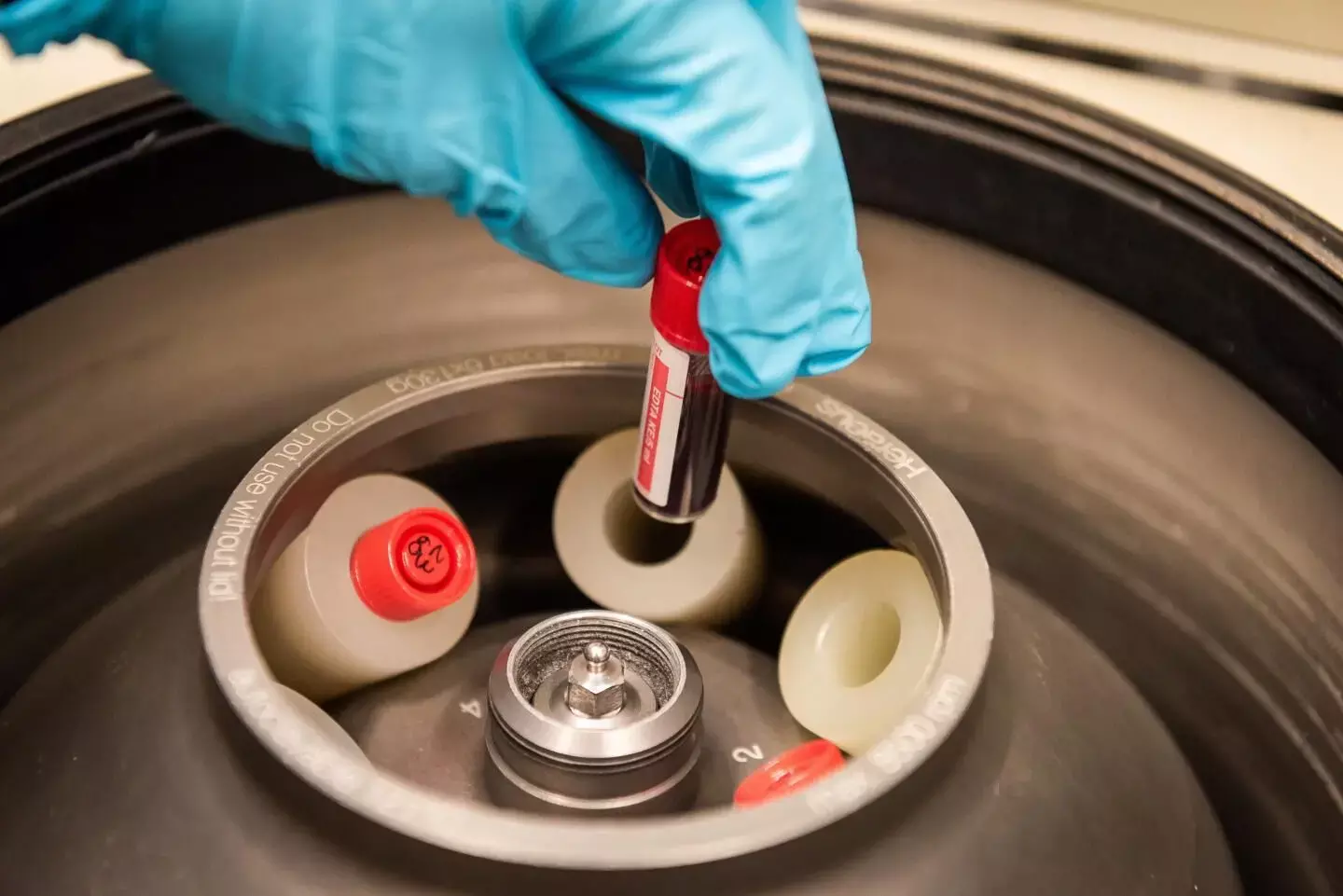- Home
- Medical news & Guidelines
- Anesthesiology
- Cardiology and CTVS
- Critical Care
- Dentistry
- Dermatology
- Diabetes and Endocrinology
- ENT
- Gastroenterology
- Medicine
- Nephrology
- Neurology
- Obstretics-Gynaecology
- Oncology
- Ophthalmology
- Orthopaedics
- Pediatrics-Neonatology
- Psychiatry
- Pulmonology
- Radiology
- Surgery
- Urology
- Laboratory Medicine
- Diet
- Nursing
- Paramedical
- Physiotherapy
- Health news
- Fact Check
- Bone Health Fact Check
- Brain Health Fact Check
- Cancer Related Fact Check
- Child Care Fact Check
- Dental and oral health fact check
- Diabetes and metabolic health fact check
- Diet and Nutrition Fact Check
- Eye and ENT Care Fact Check
- Fitness fact check
- Gut health fact check
- Heart health fact check
- Kidney health fact check
- Medical education fact check
- Men's health fact check
- Respiratory fact check
- Skin and hair care fact check
- Vaccine and Immunization fact check
- Women's health fact check
- AYUSH
- State News
- Andaman and Nicobar Islands
- Andhra Pradesh
- Arunachal Pradesh
- Assam
- Bihar
- Chandigarh
- Chattisgarh
- Dadra and Nagar Haveli
- Daman and Diu
- Delhi
- Goa
- Gujarat
- Haryana
- Himachal Pradesh
- Jammu & Kashmir
- Jharkhand
- Karnataka
- Kerala
- Ladakh
- Lakshadweep
- Madhya Pradesh
- Maharashtra
- Manipur
- Meghalaya
- Mizoram
- Nagaland
- Odisha
- Puducherry
- Punjab
- Rajasthan
- Sikkim
- Tamil Nadu
- Telangana
- Tripura
- Uttar Pradesh
- Uttrakhand
- West Bengal
- Medical Education
- Industry
High blood sugar and frailty can be reversed in obesity-related diabetes: Study
 This study investigated whether waking-up at night to consume some protein might keep blood sugars lower the next morning. CREDIT James Betts, the University of Bath
This study investigated whether waking-up at night to consume some protein might keep blood sugars lower the next morning. CREDIT James Betts, the University of BathResearchers at Monash University has have found in a new study that liver metabolism is disrupted in people with obesity-related type 2 diabetes, which contributes to high blood sugar and muscle loss - also known as skeletal muscle atrophy.
Using human trials as well as mouse models, collaborative research led by Dr Adam Rose at Monash Biomedicine Discovery Institute has found the liver metabolism of the amino acid alanine is altered in people with obesity-related type 2 diabetes. By selectively silencing enzymes that break down alanine in liver cells, high blood sugar and muscle loss can be reversed by the restoration of skeletal muscle protein synthesis, a critical determinant of muscle size and strength.
The research has been published today in Nature Metabolism.
The findings of the study have revealed that the altered liver metabolism directly affects muscle size and strength and the mechanism behind this is driven by elevated levels of the hormones cortisol and glucagon which enhance the cycling of amino acids between liver and skeletal muscle, causing muscles to become smaller and weaker.
Along with metabolic dysfunction and related complications, an often overlooked co-morbidity of obesity is skeletal muscle atrophy, which causes frailty, and is related to reduced life-quality and death.
"The ageing-related diseases of skeletal muscle loss and type 2 diabetes are very prevalent and are a huge societal and economic burden. We have known for some time that the ageing-related diseases of skeletal muscle loss and type 2 diabetes were linked but we didn't know how," Dr Rose said.
He adds: "Our studies demonstrate that the liver is a critical control point for muscle protein metabolism; a discovery that is quite surprising. We believe that our new findings highlight the need to examine the role of skeletal muscle atrophy in type 2 diabetes more closely in human clinical populations."
The study solidifies the long-known metabolic biochemistry staple, the glucose-alanine cycle, as a fundamental part of metabolism in health and disease.
Read the full paper in Nature Metabolism titled: Liver alanine catabolism promotes skeletal muscle atrophy and hyperglycemia in type 2 diabetes. DOI: 10.1038/s42255-021-00369-9
For further reference log on to:
http://dx.doi.org/10.1038/
Dr Kamal Kant Kohli-MBBS, DTCD- a chest specialist with more than 30 years of practice and a flair for writing clinical articles, Dr Kamal Kant Kohli joined Medical Dialogues as a Chief Editor of Medical News. Besides writing articles, as an editor, he proofreads and verifies all the medical content published on Medical Dialogues including those coming from journals, studies,medical conferences,guidelines etc. Email: drkohli@medicaldialogues.in. Contact no. 011-43720751


